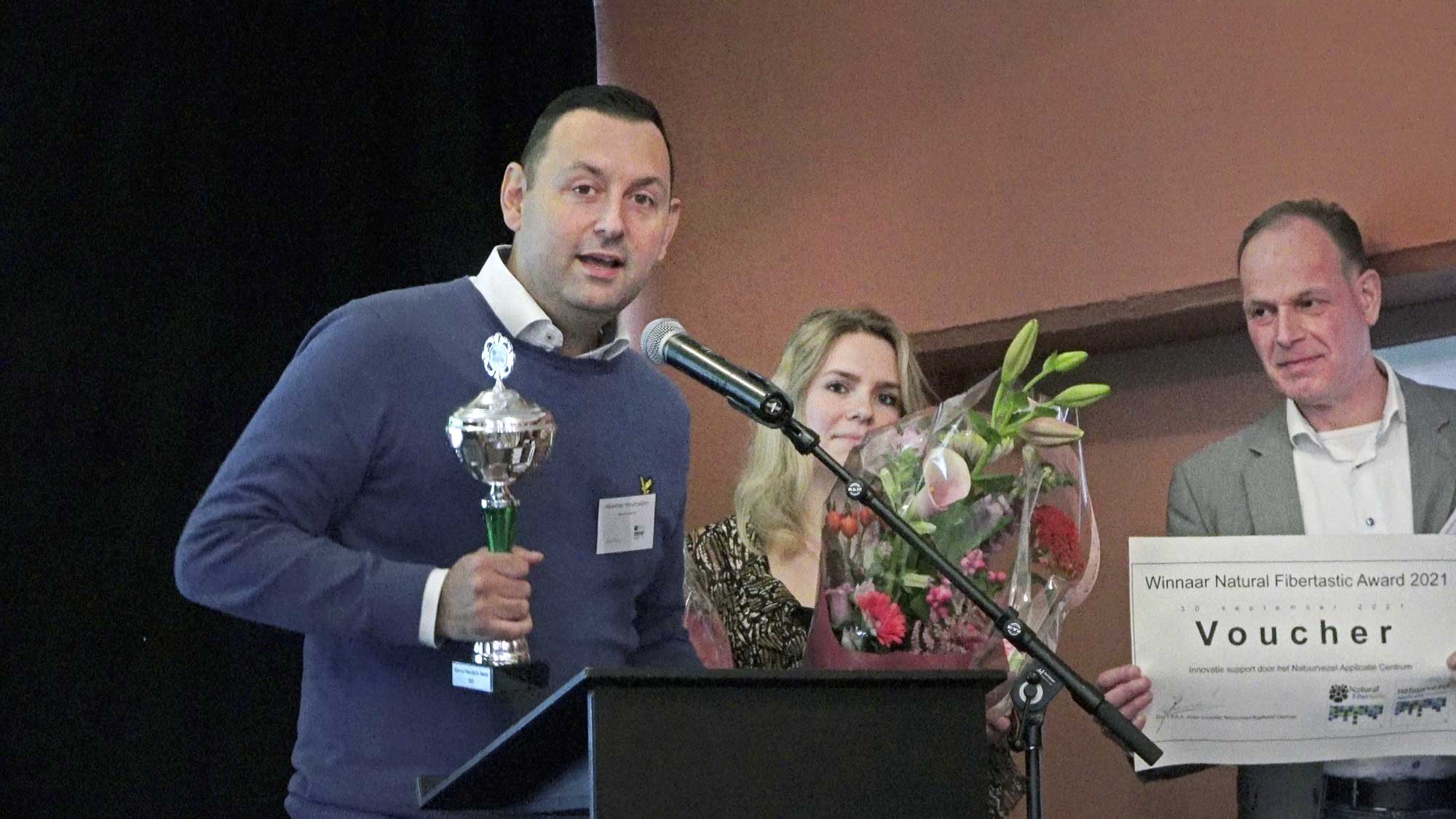Kerloc is completely based on residual waste from agriculture, horticulture and forestry. At the moment, mainly Dutch poplar wood is used. Other waste streams, such as roadside grass, are also being investigated. Water and minerals are added to the wood chips to initiate the petrification process.
Because the mixture does not need to be fired, as is the case with traditional ceramics, it is very energy-efficient. The Kerloc slabs are formed under low pressure on a conveyor belt and cut to size. For the finish, a durable mineral coating can then be applied which does not hinder recycling. After the sheets have reached the end of their service life of about 50 years, Martens can take them back and process them completely into new Kerloc slabs.
“We started 2.5 years ago with an idea, a mixing bowl and a hand mixer. The fact that we are now realising the first project and winning this prize proves that you have to persevere and have the courage to roll out your innovation on a large scale,” says Alexander Hooijmaaijers from Martens Keramiek.
The NFT is awarded annually to companies that score the highest on circular biobased/CO2 impact/closing cycles/renewability, problem-solving capacity/added value/market potential, innovative character, scalability, the ‘Wow factor’ or game-changer. “Simply put: we looked for courage, cross-thinking and perseverance,” says Dietmar Lemmens, project manager for Economy of the Municipality of Bergen op Zoom. Together with Joop Groen, he formed the jury. Last year’s winner, Willem Kemmers (Impershield), was unable to attend due to circumstances.
The NFT Award 2021 consists of a trophy and free innovation advice from the Natural Fibre Application Centre (NAC).
Keep an eye on Agro&Chemistry for the report and aftermovie of Natural Fibertastic 2021!



